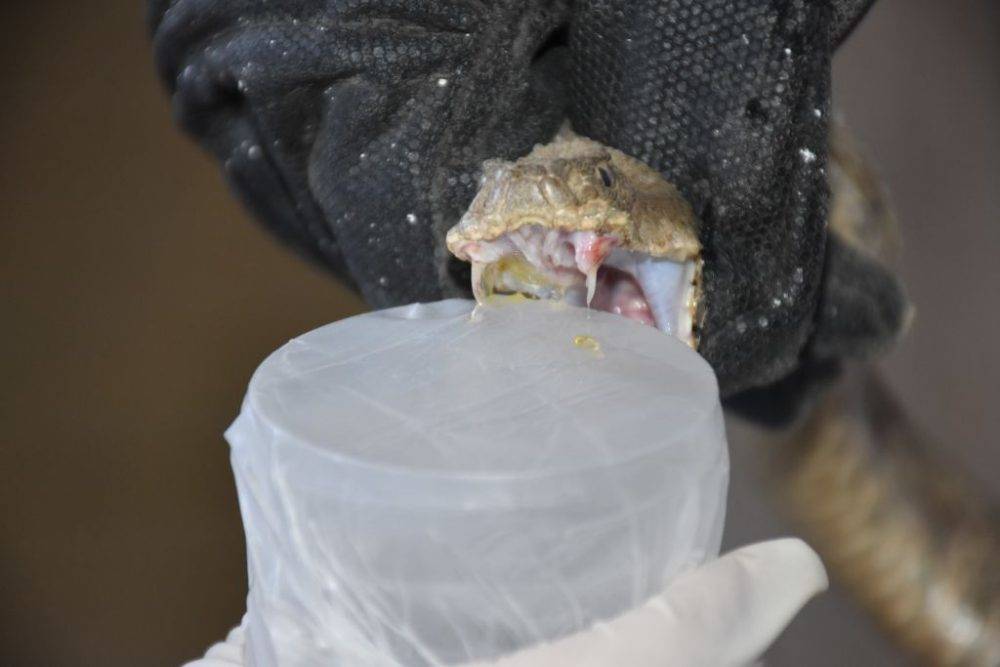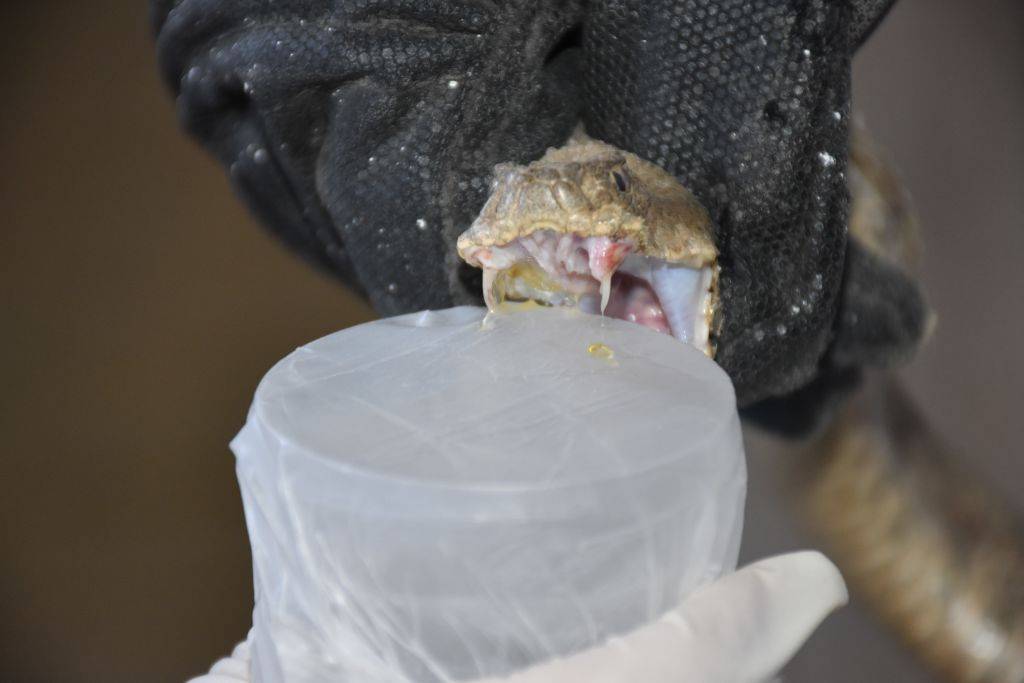
The African Snakebite Institute estimates that more than 4,000 people are bitten by snakes each year, but only a quarter of them are hospitalized. Only 10% of them require antivenom treatment. (Photo credit: Kemal Karagoz/Anadolu Agency/Getty Images)
As South Africans endure a hot summer as snakes emerge from hibernation, production of anti-venom for snakebites at the South African Vaccine Production Company (SAVP) has been delayed due to facility renovations.
“This initiative aims to address previous concerns about machine failures, primarily caused by aging equipment and inadequate infrastructure,” the National Health Inspection Service said in a statement. SAVP is part of the National Health Laboratory Service.
The African Snakebite Institute estimates that more than 4,000 people are bitten by snakes each year, but only a quarter of them are hospitalized. Only 10% of them require antivenom treatment.
The institute said there is more than enough snake venom available for vaccination.
This was supported by Jason Seal, director of the Hartbeespoort Dam Snake Zoological Park, who said the depletion of the National Institutes of Health's antivenom stockpile would not impact the national stockpile.
“In South Africa, snakebites are not very frequent, but when a snakebite does occur it must be treated with the correct antivenom for best results, but there are two types of antivenom that are sufficient for demand. ” he said..
The regions with the highest snakebite rates are KwaZulu-Natal and Mpumulanga, where between 24 and 34 people per 100,000 are bitten by snakes each year. The incidence of bites is also high in the Northwest.
The most common snake antivenom in South Africa is polyvalent SAIMR, manufactured by a South African vaccine production company. Another antivenom used at Hartbeespoort Dam Snake and Animal Park is Panaf Premium, which is World Health Organization approved and can be used in both animals and humans.
Seal said Panaf Premium can be used to treat 24 different snake venoms, while polyvalent SAIMR can only be used for 10 snake venoms, so it has proven to be very effective. He said that
“We have been using this since last year and it has proven to be very effective, so we have started supplying it to government agencies and hospitals,” he said.
Panaf is a freeze-dried product, in powder form, which requires no refrigeration and has a shelf life of four years. The price per vial is just over R2,000, but the downside is that patients require twice as many vials compared to SAVP polyvalent antivenom.
According to the African Snakebite Research Institute, one of the biggest problems with SAVP polyvalent antivenom is that approximately 4 in 10 patients develop anaphylaxis as a result of an allergic reaction to horse plasma, requiring urgent medical intervention. be.
For this reason, antivenom is only administered by trained medical professionals in hospitals.
“To date, not a single patient treated with Panaf Premium in South Africa has experienced anaphylaxis. Approximately 9 out of 10 snakebite patients admitted to hospital simply do not believe the level of venom justifies administration. “They have not been given anti-venom because they cannot be cured,” the institute said.
The National Institutes of Health declined to comment when asked when production of the antivenom vaccine would resume.

